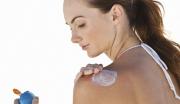
In today’s world, it’s easy to wind up eating far more red or processed meat than we should. Whether it’s a daily bacon and egg sandwich at the drive-through, the pulled pork you make regularly on the backyard smoker, a charcuterie board packed with imported prosciutto, the convenience store beef jerky, or deli sandwiches in the children’s lunch boxes, processed and red meat is everywhere.
But studies continue to show a strong link between processed and red meats and cancer, especially colorectal cancer. Now is a good time to take inventory of how much you eat each week, and consider making changes to lower your cancer risk. The good news? Taking steps to lower your cancer risk at any age can make a big difference.
Why is too Much Red and Processed Meat Bad for Us?
Processed meat refers to any meat that has been smoked, cured, salted, fermented or had preservatives added for enhanced color and shelf life. Think pepperoni, bacon, sausage (even turkey sausage), salami, deli meats, and smoked meats. Red meat is beef, pork and lamb. Not only are they both leading contributors to heart disease, both are shown to increase your risk for cancer. It’s not clear exactly why, but research shows a few possible mechanisms:
- Nitrates/nitrites: These are the chemical compounds added for color and preservation, but they have been shown to form carcinogenic compounds when metabolized in the body.
- Chemicals formed in the cooking process: When meat is smoked or cooked at high temperatures, carcinogenic compounds form including Polycyclic Aromatic Hydrocarbons (PAHs) and heterocyclic amines (HCAs). These have been shown to damage DNA, which can lead to cell mutation and cancer.
- Heme iron: Heme iron is iron from hemoglobin found in animal meat. The heme iron found in red meat may damage the lining of the colon.
How Much is too Much?
Anneliese Kuemmerle, MS, RD, is a dietitian at Shore Medical Center where she supports people diagnosed with cancer to help them meet their optimal nutrition needs during treatment and after. Her go-to resource for cancer prevention and oncology nutrition is the American Institute for Cancer Research (AICR).
The AICR says that for processed meat, every 50 grams (about one hot dog or two slices of ham) eaten daily raises the risk of colorectal cancer by 16 percent. Research also shows that even eating a small amount of processed meat increases your colorectal cancer risk, so AICR recommends avoiding them altogether, except on special occasions. For red meat, AICR recommends no more than 12 – 18 oz. cooked a week – about three small servings a week.
Kuemmerle says that not only is it important to limit the amount of red and processed meat we eat, but we should also try to ensure 2/3 of our plate at each meal contains nutrient rich foods like fruits, vegetables, whole grains, beans and legumes. She also strongly recommends people follow the 10 cancer prevention guidelines outlined by the AICR.
“Eating for cancer prevention is not just about cutting back or eliminating foods – it’s about adding nutrient-rich foods in their place as well,” says Kuemmerle. “Consider what the processed and red meat is displacing from your diet. For example, you could use just one slice of ham on your sandwich and add a chickpea mash to add the nutrition benefits of legumes. When you add more nutrient dense foods, it supports a healthy weight, which lowers your cancer risk as well.”
10 Cancer Prevention Guidelines from the AICR
By following these 10 guidelines set forth by the AICR, you can lower your risk of developing cancer. While it may seem overwhelming, even incorporating just two of these guidelines can lower your overall risk of cancer.
- Be a healthy weight: Keep your weight within the normal range for your height and weight, and avoid gaining weight in adulthood. There is strong evidence that links greater body fatness to 12 types of cancer.
- Be physically active: Find ways to be physically active every day, and avoid sitting for lengthy periods of time. Try to get at least 30 minutes of physical activity five days a week.
- Eat a diet rich in whole grains, vegetables, fruits, and beans: The AICR recommends making your plate 2/3 colorful foods such as vegetables, fruits, whole grains, beans, nuts and seeds. That ensures you’re getting the important nutrients such as fiber, vitamins, and phytonutrients. Kuemmerle says many phytonutrients, which are natural chemicals found in plants, act as antioxidants in the body and help eliminate free radicals in our body that essentially “bounce around and break things, like DNA, and can lead to cancer.”
- Limit ‘fast foods’ and processed foods high in fat, starches, or sugars: Limiting these foods help you maintain a healthy weight, which is important because greater amounts of body fat is linked to cancer.
- Limit the amount of red or processed meat in your diet: Eat no more than moderate amounts (12-18 ounces per week) of red meat, such as beef, pork, and lamb. Eat little, if any, processed meat. There is strong evidence that eating red or processed meat are both causes of colorectal cancer.
- Drink mostly water or unsweetened drinks: Sugary drinks can lead to weight gain and an increased risk of developing cancer. Stick to plain water or sparkling water, or add some fruit slices for extra flavor. Coffee and tea (without sugar) contain polyphenols which can help with cancer prevention.
- Limit alcohol: AICR research shows that alcohol increases the risk of six cancers: colorectal, breast, esophageal, liver, stomach and oral. The heavier you drink, the greater your risk. For cancer prevention, it’s best not to drink alcohol, but if you do enjoy alcohol, limit your intake to 2 drinks a day for men, 1 drink a day for women.
- Avoid using supplements for cancer prevention: While there are many supplements that claim to help prevent cancer, the best way to get your nutrients is through whole, nutrient-dense foods. When vitamins, fiber or antioxidants are isolated into a supplement, they may not be absorbed as well as when you get them from whole, natural foods.
- For mothers, breastfeed your baby, if you can: Breastfeeding has been shown to lower a mother’s risk for developing breast cancer, and may reduce a baby’s risk for developing obesity when they get older.
- If you’re a cancer survivor: Consider following AICRs guidelines. All cancer survivors should receive nutritional and physical activity guidance from trained professionals to stay as healthy as possible.
Take the Next Steps
Are you unsure if you’re doing everything you can to lower your cancer risk? The AICR has many great tools to help you, including their award-winning “Cancer Health Check” quiz and their Healthy10 Challenge. If you’re a cancer survivor who needs nutrition assistance, consider meeting with a dietitian to help you make positive changes. Learn more at www.aicr.org.










